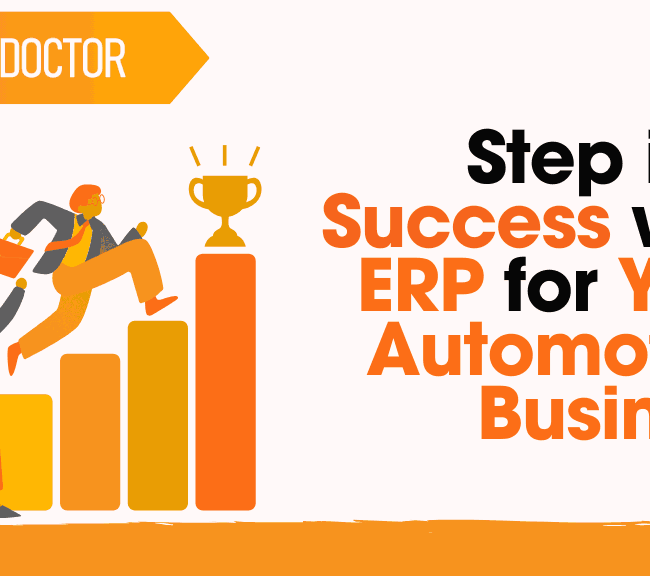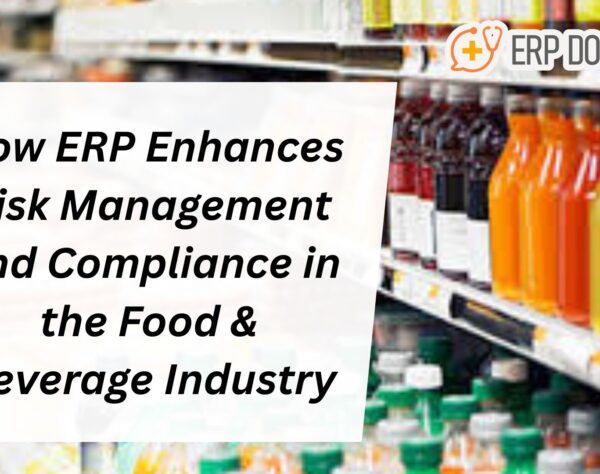
Textile Industry Supply Chain Chaos? Here’s Why ERP is Ultimate Solution

ERP Solutions for Textile Industry: The Key to Streamlined Supply Chains
The textile industry is one of the most dynamic and competitive sectors globally, but it faces major supply chain challenges such as inventory mismanagement, production delays, quality control issues, and fluctuating demand. These hurdles can lead to inefficiencies, higher costs, and missed business opportunities.
How can textile manufacturers and suppliers streamline operations? The answer lies in ERP for Textile Industry.
An ERP solution for textile industry integrates all business processes, from procurement to production, inventory tracking, and sales management, ensuring seamless operations.
Challenges in the Textile Supply Chain
Here are some common supply chain challenges in the textile industry:
- Unpredictable Demand & Overstocking – Poor forecasting leads to excess stock or shortages.
- Quality Control Issues – Ensuring uniform quality across batches can be difficult.
- Raw Material Procurement Delays – Supply disruptions impact production timelines.
- Complex Inventory Management – Managing diverse SKUs across locations is challenging.
- Inefficient Order Processing – Lack of automation results in delays and errors.
- Compliance & Sustainability Regulations – Adhering to environmental norms requires proper tracking.
To overcome these roadblocks, ERP implementation for textile industry provides real-time visibility, automation, and better control over the supply chain.
How ERP Solutions for the Textile Industry Resolve Supply Chain Chaos
1️⃣ Real-Time Inventory Management
An ERP system for textile businesses enables accurate inventory tracking across warehouses and production units, preventing overstocking and shortages.
2️⃣ Seamless Procurement & Vendor Management
ERP automates the purchase order process, helping businesses source raw materials on time and negotiate better supplier terms.
3️⃣ Enhanced Production Planning & Scheduling
By integrating material requirements planning (MRP) and automated workflows, ERP minimizes production bottlenecks and enhances resource utilization.
4️⃣ Efficient Order Fulfillment & Logistics
ERP enables real-time order tracking, improving delivery timelines and reducing transportation costs.
5️⃣ Quality Control & Compliance Management
With built-in quality assurance modules, ERP ensures compliance with textile industry standards and sustainability regulations.
6️⃣ Data-Driven Decision Making
Comprehensive analytics and reporting tools provide valuable insights for demand forecasting and business growth strategies.
Why ERP Implementation for Textile Industry is a Game-Changer
🔹 Scalability – ERP grows with your business, supporting new product lines and market expansions.
🔹 Cost Reduction – Automation eliminates manual errors, reducing operational costs.
🔹 Improved Customer Satisfaction – Faster order processing enhances the customer experience.
🔹 Sustainability Compliance – ERP ensures adherence to environmental and ethical sourcing norms.
Simplifying Textile Supply Chains: ERP FAQs You Must Know
1. What is ERP for the Textile Industry?
ERP (Enterprise Resource Planning) for the textile industry is a software solution that integrates and automates business processes like inventory management, production planning, order processing, and supply chain management.
2. How does ERP help in managing textile supply chain challenges?
ERP provides real-time inventory tracking, automated procurement, improved production scheduling, and better logistics management, reducing delays and inefficiencies.
3. Can ERP help reduce raw material shortages?
Yes, ERP enables better demand forecasting and supplier coordination, ensuring raw materials are procured on time to avoid production delays.
4. How does ERP improve quality control in the textile industry?
ERP includes quality control modules that track defects, ensure compliance with industry standards, and help maintain consistent product quality.
5. Is ERP beneficial for small textile businesses?
Yes, ERP solutions are scalable and can be tailored to suit small and mid-sized textile businesses, helping them automate operations and grow efficiently.
6. How does ERP optimize order processing in textiles?
ERP automates order tracking, invoicing, and fulfillment, reducing manual errors and ensuring faster deliveries to customers.
7. What role does ERP play in cost reduction for textile companies?
ERP eliminates wastage, reduces overstocking, and automates labor-intensive tasks, leading to lower operational costs and improved profitability.
8. Can ERP ensure sustainability compliance for textile manufacturers?
Yes, ERP helps track eco-friendly material usage, waste management, and compliance with environmental regulations in the textile industry.
9. How long does it take to implement ERP in a textile business?
The implementation timeline depends on business size and complexity, but most ERP solutions take a few months for full deployment.
10. How to choose the best ERP solution for a textile business?
Look for an industry-specific ERP with inventory management, production planning, quality control, and supply chain features to meet your textile business needs.
Final Thoughts: Is Your Textile Business Ready for ERP?
If your textile business struggles with supply chain inefficiencies, delayed orders, and cost overruns, it’s time to adopt an ERP solution for the textile industry. By integrating core business functions, ERP transforms textile operations into an agile, efficient, and future-ready ecosystem.
👉 Ready to take control of your textile supply chain? Discover the best ERP solutions today!







